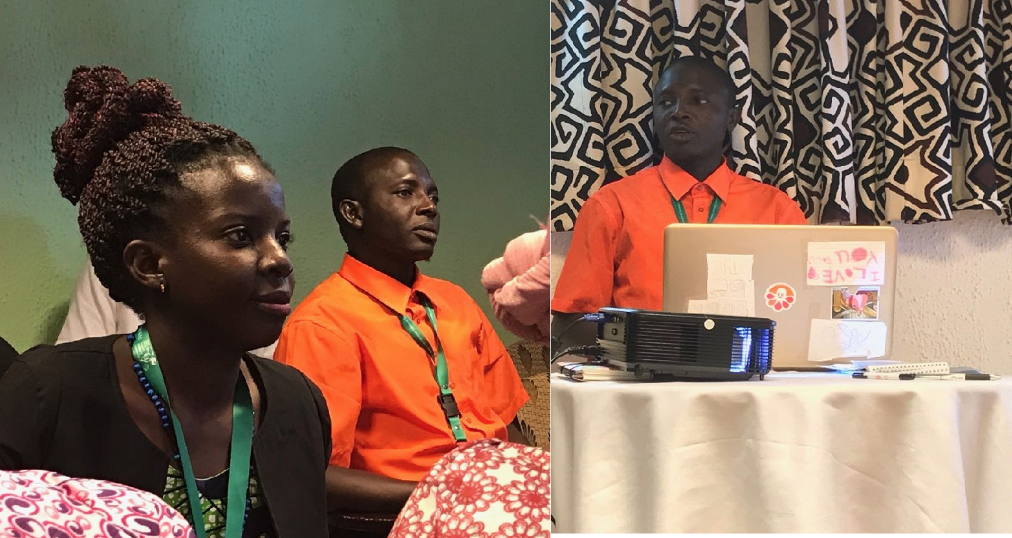By: Bello Abdulrazaq Abolore, GREAT-RTB Fellow (IITA- Cassava Breeding Unit Gender team)
Twenty-nine root, tuber and banana (RTB) researchers, both men and women from national and international research institutes in sub-Saharan Africa, were trained in Uganda in 2016 and 2017 as part of the Gender-responsive Researchers Equipped for Agricultural Transformation (GREAT) project. GREAT is a collaborative project between Cornell University (USA) and Makerere University (Uganda), designed to stimulate gender responsiveness within agricultural research by addressing priorities of men and women, and to share benefits of research findings among stakeholders in agricultural value chains. The Fellows have started to implement acquired skills and knowledge in their various disciplines and countries. The impact of the GREAT RTB Fellows activities were recognized as they bagged different awards in the fourth Global Cassava Partnership (GCP21) held in Cotonou, Benin, where outcomes of the fellows’ research findings, funded by GREAT seed grants, were presented.
The Global Cassava Partnership (GCP) was launched 15 years ago in Belgium in 2003. The second GCP21 conference in Africa was held in Cotonou, Benin from 11-15 June, 2018, with the theme of cassava transformation in Africa. The opening ceremony was graced with eminent scholars, young and erudite scientists, policy makers, administrators of national and international agricultural and related institutions, and small, medium and large scale industry managers playing key roles in transforming African agriculture, including a cassava revolution.
Among the dignitaries at the opening ceremony were representatives of the government of Benin: the Minister of Higher Education and Scientific Research; the Minister of Agriculture, Animal Husbandry and Fisheries; the Dean of the Faculty of Agronomy at the University of Abomey, Calavi; a representative of the African Development Bank (AFDB); the Deputy Director General of the International Institute of Tropical Agriculture (IITA), Claude Fauquet (outgoing GCP 21 Director); Malachy Akoroda (the incoming GCP21 Director); and a representative of Bill and Melinda Gate Foundation (BMGF).

GREAT-RTB Fellows at the Youth and Gender session GCP21 in Cotonou, Benin.
Photos provided by Canaan Boyer.
In his speech, the outgoing Director of GCP21 mentioned that cassava is a most affordable food for many people, and an industrial crop that produces many byproducts for domestic and industrial use, thereby creating more opportunities for Africa. He stressed the aim of the conference to improve and stabilize production and profitability of cassava, and exhorted cassava research and development to address important challenges that can transform cassava in Africa.
In their speeches, the representatives of the Beninese government emphasised the importance of cassava to the economy of the country as the theme of the conference is in line with the Benin action plan of making cassava a flagship crop, as over 20 products can be made from cassava in the country, and because it is an important raw material for making many African dishes. They further mentioned the vision of the African Development Bank’s (AFDB) President of Financing Projects, that cassava will attract youth to agriculture and will so reposition agriculture as a mainstay of the African economy. This will create opportunities for Africans by funding the tackling of challenges faced by value addition and agricultural stakeholders.
Facing these challenges is a turning point towards youth empowerment, eradication of poverty, and food security. The speech was rounded up by stressing that cassava transformation will enhance productivity, competitiveness and scaling up of cassava innovations or technologies.
Six plenary sessions and 17 break-out sessions were held at the conference in which young scholars made oral and poster presentations on different aspects of cassava, ranging from breeding, biotechnology, agronomy, seed production, value addition and food science, acceptance, market, economy and policy, to the impact of youth and gender.





